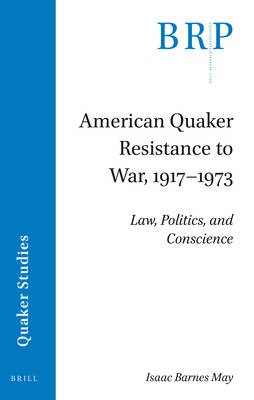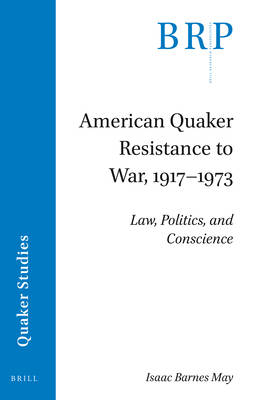
- Afhalen na 1 uur in een winkel met voorraad
- Gratis thuislevering in België vanaf € 30
- Ruim aanbod met 7 miljoen producten
- Afhalen na 1 uur in een winkel met voorraad
- Gratis thuislevering in België vanaf € 30
- Ruim aanbod met 7 miljoen producten
Zoeken
€ 143,45
+ 286 punten
Omschrijving
This historical survey of Quakers in the United States examines their responses to war during World War I, World War II, and the early Cold War, including the Korean and Vietnam conflicts, with particular focus on the social, political, legal, and theological aspects of the Quaker peace testimony. Quakers responded to these conflicts in a variety of ways, ranging from pacifism to support for military action. The boundaries and constraints of Quaker beliefs about violent conflict and the meaning of the peace testimony were determined by debates within the Religious Society of Friends. Isaac Barnes May asserts that Quakers' reactions to war in the twentieth-century should also be understood as closely related to Quakerism's relationship to state power. The choice to accommodate or resist government pressure worked alongside internal forces to shape Quakerism in the United States. Ultimately, May argues that there is no single pattern of Quaker response to modern war.
Specificaties
Betrokkenen
- Auteur(s):
- Uitgeverij:
Inhoud
- Aantal bladzijden:
- 104
- Taal:
- Engels
- Reeks:
Eigenschappen
- Productcode (EAN):
- 9789004522503
- Verschijningsdatum:
- 7/07/2022
- Uitvoering:
- Paperback
- Formaat:
- Trade paperback (VS)
- Afmetingen:
- 150 mm x 229 mm
- Gewicht:
- 158 g

Alleen bij Standaard Boekhandel
+ 286 punten op je klantenkaart van Standaard Boekhandel
Beoordelingen
We publiceren alleen reviews die voldoen aan de voorwaarden voor reviews. Bekijk onze voorwaarden voor reviews.











